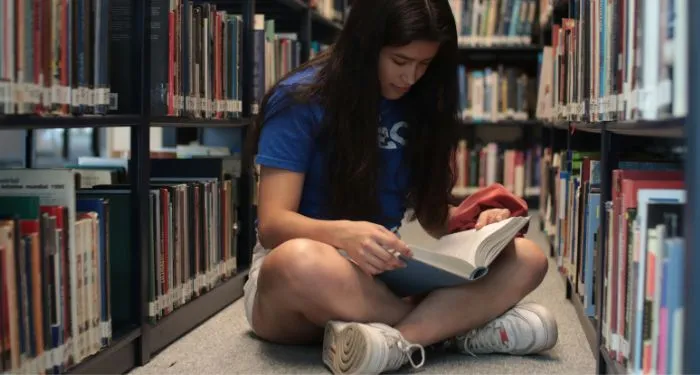
Innovative Study by UPenn and NYPL Finds That Public Libraries Positively Impact Community Health and Well-Being
The results of a groundbreaking partnership between the Humanities and Human Flourishing Project within The University of Pennsylvania’s Positive Psychology Center and the New York Public Library (NYPL) has resulted in a similarly important and rare case study that directly shows the impact of public libraries on individual and community well-being.
The white paper, titled “Libraries & Well-Being: A Case Study from The New York Public Library,” got its data from surveys distributed to New York Public Library users, and uses positive psychology frameworks in its analysis. For the unfamiliar, positive psychology is a field that studies well-being, and the data from this study was analyzed using positive psychology’s PERMA (Positive Emotions, Engagement, Relationships, Meaning, and Accomplishment) model.
Some of the highlights found were:
- 92% of respondents reported feeling somewhat to very “calm / peaceful” after visiting the Library;
- 74% of respondents reported that their library use positively affects how equipped they feel to cope with the world;
- 90% of respondents reported that their Library use positively affects how much they love to learn new things; and
- 88% of respondents reported that their Library use has supported their personal growth.
Additionally, these positive impacts on society are even higher for lower-income communities and patrons who physically go into the library compared to those who only use the library’s digital services. A whopping 82% of people who used the library’s physical space and 79% of people who physically attended programs reported more optimism regarding the future, compared to only 58% of digital-only users.
This is evidence of not only the importance of third spaces, but also the importance of public libraries as third spaces.

“This work is descriptive and correlational—not causal —in nature; however, we believe these results provide meaningful evidence of the Library’s role in supporting individuals’ flourishing. These findings are a testament to public libraries’ contributions to the health of their communities. As such, they point to the possible benefits of public libraries playing a more active and prominent role in discussions about the health and well-being of communities across the country.” — The study’s publishers
And, while the surveys collected and analyzed in the study were specific to the New York Public Library, researchers believe they can be extended to other libraries—be they in rural, urban, or suburban areas—across the country.
Daphna Blatt, the NYPL’s Senior Director of Strategy & Public Impact and one of the people involved in the study, underscored the significance of confirming through scientific method what many library lovers have known for awhile, saying, “Libraries & Well-Being is an innovative study in how it applies positive psychology frameworks to the library world, to show for the first time that library usage positively contributes to externally validated measures of well-being. Our research found that patrons experience refuge, joy, connection, purpose, and expansion through their library use.”
In addition to Daphna Blatt, the study involved the NYPL’s Dr. E.K. Maloney (Patron Impact and Satisfaction Researcher), as well as Dr. James O. Pawelski (Professor of Practice and Founding Director of the Humanities and Human Flourishing Project) and Dr. Katherine N. Cotter (Associate Director of Research at the Humanities and Human Flourishing Project) from the University of Pennsylvania’s Positive Psychology Center.
To read more about the study, visit NYPL.org. You can also download the case study here.
Find more news and stories of interest from the book world in Breaking in Books.
More breaking news here
- The Most Read Books on Goodreads This Week
- Finalists for the 2025 Young Lions Fiction Award Announced by The New York Public Library
- The Most Read Books on Goodreads This Week
- The Most Read Books on Goodreads This Week
- The Bestselling Books of the Week, According to All the Lists
- Apple TV+ Just Dropped the Official Murderbot Trailer
- The ALA is Suing DOGE Over “Gutting” the IMLS
- The Shortlist for the International Booker Prize 2025 has Been Announced
- These are the Finalists for the 2025 Hugo Awards
- The Most Read Books on Goodreads in March 2025











